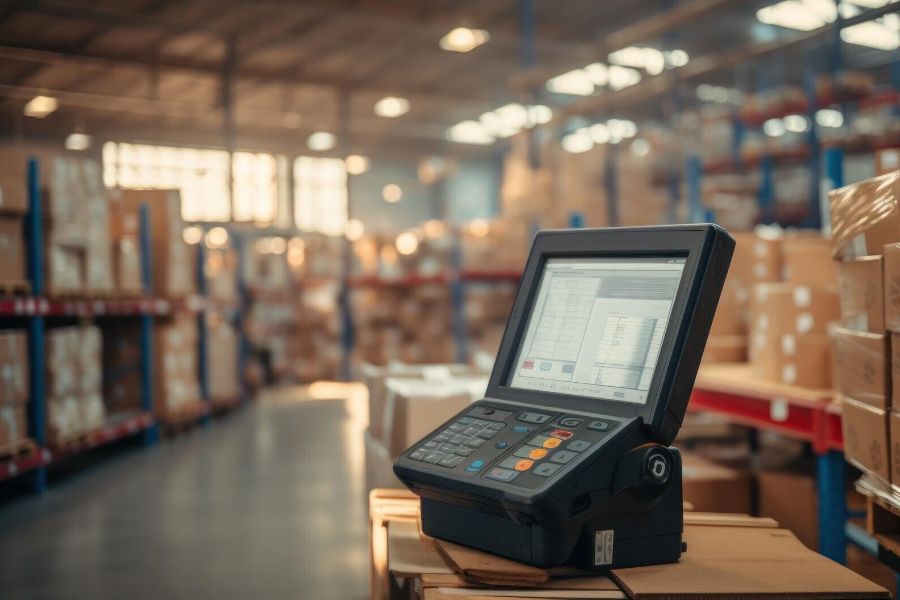Are you a restaurant owner in the Philippines looking to streamline your operations and enhance customer satisfaction? Have you considered the benefits of implementing a self service POS system? Innovative solutions offer numerous advantages that can revolutionize the way your restaurant operates, from improving order accuracy to boosting efficiency.
In this blog post, we’ll delve into 8 key advantages of self service POS systems for restaurants in the Philippines, shedding light on how they can empower establishments to thrive in a rapidly evolving market.
What is a Self service POS System?
A self-service POS system is a technological solution that enables customers to independently initiate and complete transactions without the need for direct assistance from a cashier or attendant. These systems typically consist of user-friendly interfaces, such as touchscreen displays or mobile applications, that guide customers through the purchasing process.
Self service POS systems are commonly found in various retail environments, including retail, fast-food restaurants, and convenience stores, where they help streamline operations and enhance the overall customer experience.
Across various dining formats, ranging from quick-service restaurants to fast-casual establishments and traditional dining venues, implementing a self service POS system can enhance order accuracy. This is achieved through functionalities enabling customers to browse menu items, modify their orders by adding or removing components, view daily specials, place orders, and verify the accuracy of their inputs.
Whether patrons seek to customize their orders or explore suggested add-ons, a self-service POS system can boost business efficiency and key performance indicators (KPIs) such as sales tickets. While some establishments feature standalone units, others employ tabletop units, allowing customers to conveniently place orders from their seats. Once an order is placed, it seamlessly transmits to the kitchen display system, fostering seamless communication between the front of the house and the kitchen.
8 Advantages Of Self service POS Systems For Restaurants In the Philippines
In the dynamic restaurant industry in the Philippines, self service POS systems offer a multitude of benefits that can significantly enhance operations and customer satisfaction. These systems streamline various aspects of restaurant management, from menu customization to payment processing, ultimately contributing to improved efficiency and profitability.
Extensive Menu Choices
Self service POS systems (such as ConnectPOS) empower restaurants to offer extensive menu choices to their customers. With customizable interfaces, customers can easily browse through a wide array of menu items, including customizable options, special dietary considerations, and seasonal offerings.
By providing customers with a comprehensive menu selection, restaurants can cater to diverse preferences and dietary restrictions, thereby enhancing customer satisfaction and loyalty. Moreover, the flexibility of self-service POS systems enables restaurants to swiftly update menus in real-time, ensuring accuracy and freshness.
Imagine a bustling restaurant in Manila where customers can use self service kiosks to explore an extensive menu featuring traditional Filipino delicacies, fusion cuisine, and international favorites. With just a few taps, patrons can customize their orders, selecting ingredients, portion sizes, and add-ons according to their preferences.
Enhanced Inventory Monitoring
Self service POS systems offer advanced inventory monitoring capabilities, allowing restaurants to efficiently track stock levels, manage ingredients, and prevent wastage. Through real-time inventory updates and automated alerts, restaurant owners can gain valuable insights into consumption patterns and procurement needs.
Restaurants can optimize supply chain management, minimize stockouts, and reduce food costs. Additionally, self service POS systems facilitate seamless integration with suppliers, enabling automatic replenishment based on preset thresholds and reorder points.
Consider a quaint café in Cebu equipped with a self-service POS system that monitors inventory levels of coffee beans, pastries, and condiments in real-time. When stock levels of a particular item reach a predefined threshold, the POS system automatically generates purchase orders, ensuring uninterrupted supply and preventing revenue loss.
Floor Management for Restaurants
Self service POS systems like ConnectPOS offer robust floor management features, enabling restaurants to efficiently allocate tables, manage reservations, and optimize seating arrangements. With intuitive table maps and reservation management tools, restaurants can streamline operations during peak hours and enhance the overall dining experience.
By optimizing floor management, restaurants can minimize wait times, maximize table turnover, and improve operational efficiency. Additionally, self service POS systems empower staff to provide personalized service, as they can access detailed customer preferences and order histories in real-time.
Imagine a trendy restaurant in Quezon City equipped with a self-service POS system that seamlessly coordinates table assignments and reservations. As diners arrive, the hostess can efficiently allocate tables based on availability and party size, while the kitchen receives real-time updates to ensure the timely preparation of orders.
Seamless Integration of Online Orders
Self service POS systems facilitate seamless integration with online ordering platforms, enabling restaurants to efficiently process delivery and takeaway orders alongside dine-in service. By synchronizing order data in real-time, restaurants can streamline order fulfillment and provide a cohesive omnichannel experience to customers.
By integrating online orders directly into the POS system, restaurants can eliminate manual entry errors, reduce order processing times, and enhance order accuracy. Moreover, seamless integration enables restaurants to leverage customer data for targeted marketing campaigns and loyalty programs.
Consider a pizzeria in Makati leveraging a self service POS system to seamlessly integrate online orders from its website and third-party delivery platforms. As online orders are received, they are automatically routed to the POS system, where kitchen staff can efficiently prepare and fulfill orders alongside dine-in service.
Staff and Timesheet Management
Self service POS systems offer comprehensive staff and timesheet management functionalities, allowing restaurants to streamline scheduling, track employee hours, and monitor labor costs. With built-in time clock features and payroll integration, restaurants can optimize workforce management and ensure compliance with labor regulations.
Additionally, self service POS systems enable employees to conveniently clock in and out, view schedules, and request time off directly from the POS terminal.
A family-owned restaurant in Davao City utilizing a self service POS system to streamline staff scheduling and timesheet management. With intuitive employee profiles and shift scheduling tools, the restaurant manager can efficiently allocate shifts, track labor costs, and manage staffing levels based on demand.
Automated Accounting Reports
Self service POS systems like ConnectPOS provide automated accounting report generation, offering restaurant owners comprehensive insights into financial performance, sales trends, and expense analysis. By consolidating transaction data and expense records, restaurants can streamline accounting processes and make informed business decisions.
With automating accounting reports, restaurants can reduce manual data entry errors, improve financial accuracy, and expedite month-end closing procedures. Moreover, self service POS systems enable restaurant owners to customize reports according to their specific needs, facilitating strategic planning and budgeting.
Consider a fine-dining restaurant in Taguig that leverages a self service POS system to generate daily sales reports, inventory valuation summaries, and profit and loss statements. With detailed financial insights at their fingertips, restaurant owners can identify revenue opportunities, optimize menu pricing, and monitor expense trends.
Processing Various Payment Methods
Self service POS systems support multiple payment methods, including cash, credit cards, mobile payments, and digital wallets, providing convenience and flexibility to customers. With secure payment processing capabilities, restaurants can offer a seamless checkout experience and mitigate payment-related risks.
By accepting various payment methods, restaurants can cater to diverse customer preferences and enhance transaction efficiency. Moreover, self service POS systems offer robust security features, such as encryption and tokenization, to safeguard sensitive payment data and prevent fraudulent activities.
A seafood restaurant in Boracay is equipped with a self service POS system that accepts cash, credit cards, and mobile payments. As diners complete their meals, they can choose their preferred payment method at the self-service kiosk, ensuring a hassle-free checkout experience.
Enhancing Operational Efficiency
Self service POS systems are instrumental in enhancing operational efficiency across all facets of restaurant management, from order processing to inventory control. By automating routine tasks and optimizing workflows, restaurants can minimize errors, reduce overhead costs, and focus on delivering exceptional dining experiences.
Moreover, self service POS systems empower restaurant owners to streamline day-to-day operations, allocate resources effectively, and adapt to changing market dynamics.
A sushi bar in Metro Manila leveraging a self service POS system to streamline order taking, kitchen operations, and inventory management. With intuitive touchscreen interfaces and backend analytics, the restaurant can optimize workflow efficiency, minimize wait times, and deliver memorable dining experiences to customers.
FAQs: Self service POS Systems
- Are self service POS systems suitable for all types of restaurants?
Self-service POS systems can be tailored to suit various restaurant formats, including quick-service, casual dining, and fine-dining establishments. However, the suitability may depend on factors such as menu complexity, customer demographics, and operational preferences.
- How do self service POS systems enhance customer experience?
Self service POS systems empower customers to browse menus, customize orders, and make payments at their own pace, resulting in shorter wait times, order accuracy, and personalized service.
- Can self service POS systems integrate with existing restaurant management software?
Yes, many self service POS systems offer seamless integration with existing restaurant management software, enabling restaurants to synchronize data across multiple platforms and streamline operations.
Wrap Up
In conclusion, self service POS systems offer a myriad of advantages for restaurants in the Philippines, ranging from extensive menu choices and enhanced inventory monitoring to seamless integration of online orders and staff management. By harnessing the power of technology, restaurants can elevate operational efficiency, enhance customer satisfaction, and thrive in today’s competitive food service industry.
If you want to explore the capabilities of ConnectPOS, including the self service feature, don’t hesitate to contact us.
►►► See our products: Magento POS, BigCommerce POS, Shopify POS, Woocommerce POS, NetSuite POS, Commercetools POS, Custom POS, White label POS, Customer Experience Solution and Next-Gen POS




